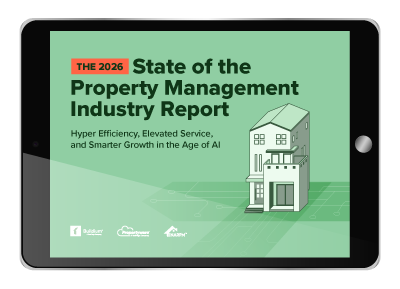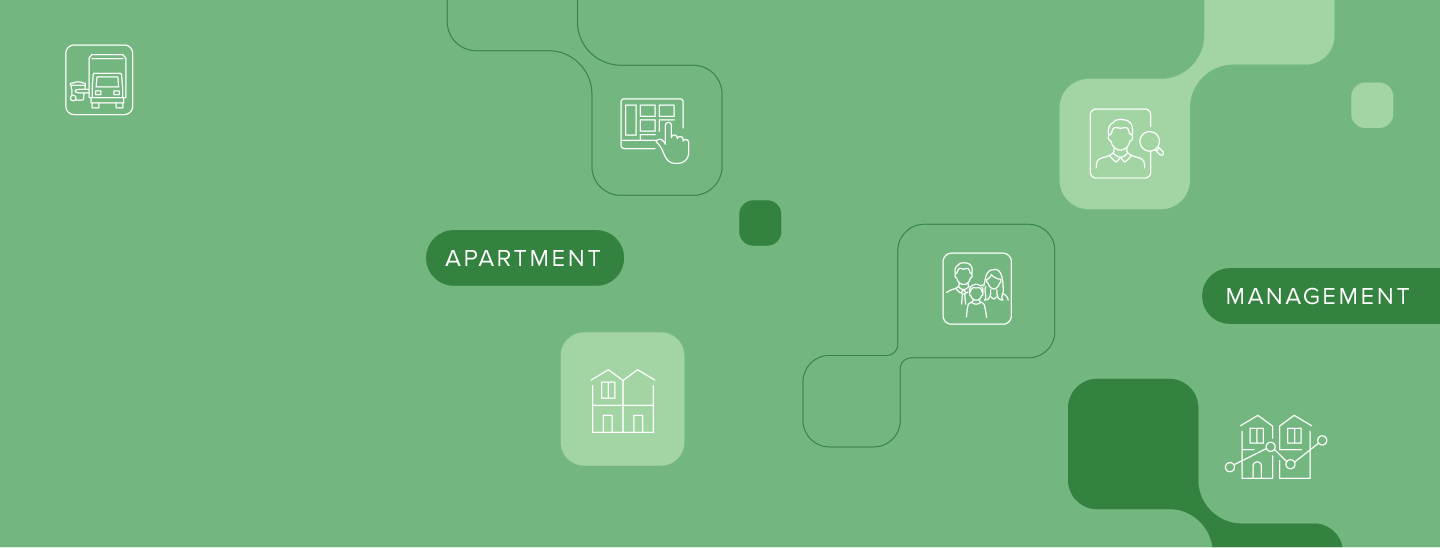Apartment property managers handle a web of revenue, expenses, vendor payments, owner communication, and regulatory requirements. Without effective systems, that complexity quickly becomes unmanageable.
Start your free trial today!
Try Buildium for free for 14 days. No credit card needed.
Start Your TrialThis is where accounting software for apartment management comes in. These platforms help with rent collection, automate financial reports, track operating expenses, and stay ready for audits. Most importantly, they save time so you can focus on growing your portfolio and improving tenant satisfaction.
In this guide, we’ll walk through what to expect from accounting software for apartment management. We’ll cover core features, how to evaluate your options, rollout strategies, and highlight five platforms worth investigating. Whether you’re upgrading or selecting your first tool, this guide will help you move forward with clarity.
What Is Accounting Software for Apartment Management
Generic accounting software may support small portfolios, but apartment management has specialized needs. Platforms such as QuickBooks work in limited cases, but they lack the structure for property-specific workflows.
Purpose-built apartment accounting tools combine unit-based financials with operational tasks. They can reconcile rent payments, allocate costs by unit or property, and generate owner-specific reports. Many tools also integrate with work orders, leases, and vendor systems.
These systems treat accounting as part of daily operations—not just a back-office task. They connect financial tracking to how your business actually functions.
Core Features to Look for in Accounting Software for Apartment Management
The best accounting software supports your current processes without requiring a complete overhaul. Some platforms focus on a few more targeted features, while others offer broad functionality and connection tools for other management tasks. Either approach can succeed, so long as it fits your needs.
Rent tracking and account reconciliation are both top priorities. Your system should log payments, track late fees, and allocate income by unit or building. Advanced platforms sync with your bank account and integrate with payment portals.
Look for tools that categorize expenses by property, unit, vendor, and task type. Sorting costs by HVAC, plumbing, landscaping, or capital improvements helps with tax preparation and forecasting.
Strong reporting capabilities are also important. Property managers need real-time dashboards, profit and loss statements, cash flow summaries, and owner reports. These should be easy to generate and tailored by property or stakeholder. Scheduling reports or exporting them in multiple formats is also helpful.
Other useful features include owner draw tracking, tax capabilities such as 1099 efiling, budgeting tools, and audit trails. As your company expands, integration with other operational software becomes increasingly valuable.
What to Know Before Choosing Accounting Software for Apartment Management
Before selecting a platform, take time to define your priorities. What problems are you trying to fix? Are you spending hours reconciling payments? Do you struggle to send consistent owner reports? Are vendors following up on unpaid invoices?
Start by identifying your biggest bottlenecks. Then outline your ideal process. Look for software that fits into what you already do—not one that forces you to change everything at once.
Think about who will use the system. Will your bookkeeper, leasing agent, or maintenance coordinator need access? If so, user permissions and ease of use matter. The right platform should work well for people without accounting backgrounds.
Also consider future growth. Do you plan to expand your portfolio? Do your investors expect professional reporting? Choose software that can grow with you instead of limiting you later.
Implementation Advice: Rolling Out Software the Smart Way
Rolling out new software takes more than buying a license. A successful launch depends on planning, communication, and hands-on training.
Start by setting a realistic launch date. Give yourself time to migrate data, test tasks, and train your staff. Spending a few extra days reviewing records or setting up your chart of accounts can prevent larger issues down the road.
Once you’ve moved your data, test the software with daily tasks. Enter rent, log expenses, run reports, and set permissions. Get your staff involved early—they might spot small workflow improvements that save time or increase accuracy.
Training matters. Even if the software seems user-friendly, a formal onboarding process leads to better adoption. Look for tools with tutorials, walkthroughs, or live support. Vendors with dedicated onboarding teams often make a big difference.
After your first full month, review how things are going. Talk with your team about what’s working and what isn’t. Tweak permissions, address data issues, and explore unused features that might improve your workflow.
Our Five Top Accounting Software for Apartment Management Picks
Many tools exist in the apartment accounting space. Each one has strengths, interface styles, and ideal user profiles. Here’s a look at five platforms and what makes them different.
Buildium
Buildium® combines accounting with operational features, making it well-suited for property managers looking for an all-in-one system. It handles rent tracking, owner reports, vendor payments, tax prep tools, advanced analytics and more within a single, cloud-based platform. Resident portals and maintenance tracking help tie financial tasks to daily operations. Buildium is a good fit for mid-sized and larger portfolios. Plus, the platform has a marketplace of fully integrated partner solutions—including many of the other choices on this list—that is continually growing.
Propertyware
Propertyware® supports managers who handle both single-family and multifamily units. Its accounting features include detailed reports, payment tracking, owner disbursements, and expense categorization. The platform’s customization tools and open API help teams with complex structures or specific integration needs.
OJO Bookkeeping
OJO® offers bookkeeping as a service rather than software. It suits managers who want to outsource accounting or catch up on financial backlogs. OJO manages reconciliation, reporting, expense tracking, and owner communication. Though you don’t log into a platform, you gain accounting support without expanding your team.
Clyr
Clyr® specializes in real-time expense tracking for field teams. It links with credit cards and bank accounts to automate categorization, receipt matching, and reporting. Its mobile-first interface lets maintenance staff assign expenses on-site, improving accuracy and cutting delays.
Purchasing Platform
Purchasing Platform® takes a procurement-first approach. It consolidates vendor orders, monitors spend, and automates invoice reconciliation. It works well for property managers who want tighter control over purchasing and better cost visibility across multiple locations.
Common Pitfalls When Implementing Accounting Software for Apartment management
Even great software can fail if launched poorly. A common mistake is trying to make too many changes at once. Switching accounting tools is already a big step—layering process changes on top of that can overwhelm your staff. Keep existing workflows in place until your team is comfortable with the software.
Unclear roles create confusion. Without defined responsibilities, tasks may be duplicated or overlooked. Map out who handles each process—who enters data, who approves expenses, who runs reports.
Poor data migration causes ongoing issues. Double-check your records before importing them. Clean up errors, update missing information, and align old records with your new system.
Skipping training slows everything down. Don’t expect users to figure things out on their own. Set aside time for guided sessions so your team learns the software’s full potential. Confident users make fewer mistakes and use more features.
Long-Term Maintenance: Keeping Your System in Shape
Your software rollout isn’t the finish line. Keep your system updated with regular reviews. Assign someone to manage roles, review your chart of accounts, and remove outdated entries. Update categories as your business evolves.
Review your reports quarterly to confirm they still match your goals. You might start with simple income and expense summaries, but grow into deeper analysis over time. Explore additional features as your portfolio expands.
Stay informed on product updates. Many vendors release new tools or refine features regularly. Subscribing to updates or joining user groups can help you find new ways to get more from your platform.
Deciding on the Right Accounting Software for Apartment Management
Strong accounting software helps more than your bottom line—it supports better decisions, stronger relationships, and business growth. It gives you accurate data when you need it and helps you deliver professional results to owners and partners.
Whether you’re just getting started or ready to upgrade, take time to find software that matches your goals, fits your workflow, and supports your team. Buildium offers a 14-day free trial and live guided demo to get familiar with the platform. You can also see how Buildium connects with some of the other software we’ve explored; OJO, Clyr, and Purchasing Platform.
With the right tools and a thoughtful rollout, you can build a financial system that works today and adapts as your business grows.
Read more on Accounting & Reporting

